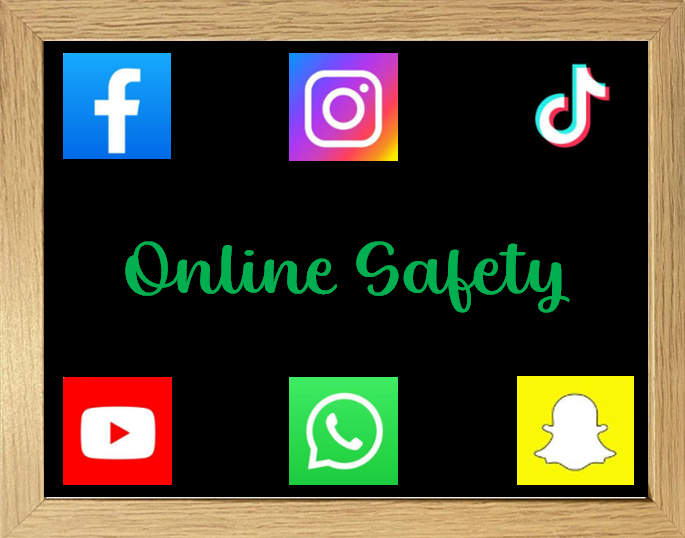Online Safety

Internet Safety is something which is taught throughout the year, in all classes. The children are taught how to be responsible users of the internet and how to keep themselves safe. They learn about keeping their passwords to themselves and what to do if they encounter a problem whilst they are using the internet.
We encourage parents to promote safe and responsible use of technology at home. If you need support please look at the following websites for advice, guidance and activities you can do with your child to support their learning.
Internet Safety and OFSTED
Internet safety is something which OFSTED take very seriously and they take this into account with a different advisory document available for the inspecting of E-safety in schools. Please click on the link below for what OFSTED look for during inspections.
Inspecting e-safety in schools.
Useful Websites
-
Get Safe On LineFree expert advice about how to stay safe on-line and how to keep others around you safe too.
-
Childnet InternationalCartoons to illustrate 5 e-safety SMART rules and include a real life SMART Crew of young people, who guide the cartoon characters in their quest, and help them make safe online decisions.
-
Think U Know - InternetA website for 8-10 year olds to explain the dangers of the internet and how to keep themselves safe.
-
KidsmartWebsite with information of how to act responsibly and stay safe when using the internet.
-
What are viruses and malware?A guide to what viruses and malware are.
-
CBBC Stay SafeA website to test your internet safety knowledge with Hacker, listen to some Stay Safe songs with Helen Skelton, News Kids On the Block and Bobby Lockwood and get some tips from the Horrible Histories gang.
-
Disney Internet SafetyA page designed by Disney to help you and your family stay safe online.
-
Think U Know - Younger ChildrenA website with different cartoons for younger children.
-
Think U Know - Younger ChildrenActivities from CEOP for younger children.
-
Better Internet for KidsA website with lots of information on how to be safe on-line.
Cyberbullying
If you are worried about cyberbullying there are lots of places you can go to for help.
For Kids:
- ChildLine: you can call 0800 1111 or chat online just click here.
- Beatbullying: chat to a young mentor or counsellor online at www.beatbullying.org
For Parents:
- Family Lives: 0808 800 2222
- Kidscape: 08451 205 204
Reporting an incident.
Has someone acted inappropriately towards you online, or to a child or young person you know? It may be inappropriate chat, being asked to do something that makes you feel uncomfortable or someone being insistent on meeting up. You can report it to CEOP (A National Crime Agency command) to investigate.
